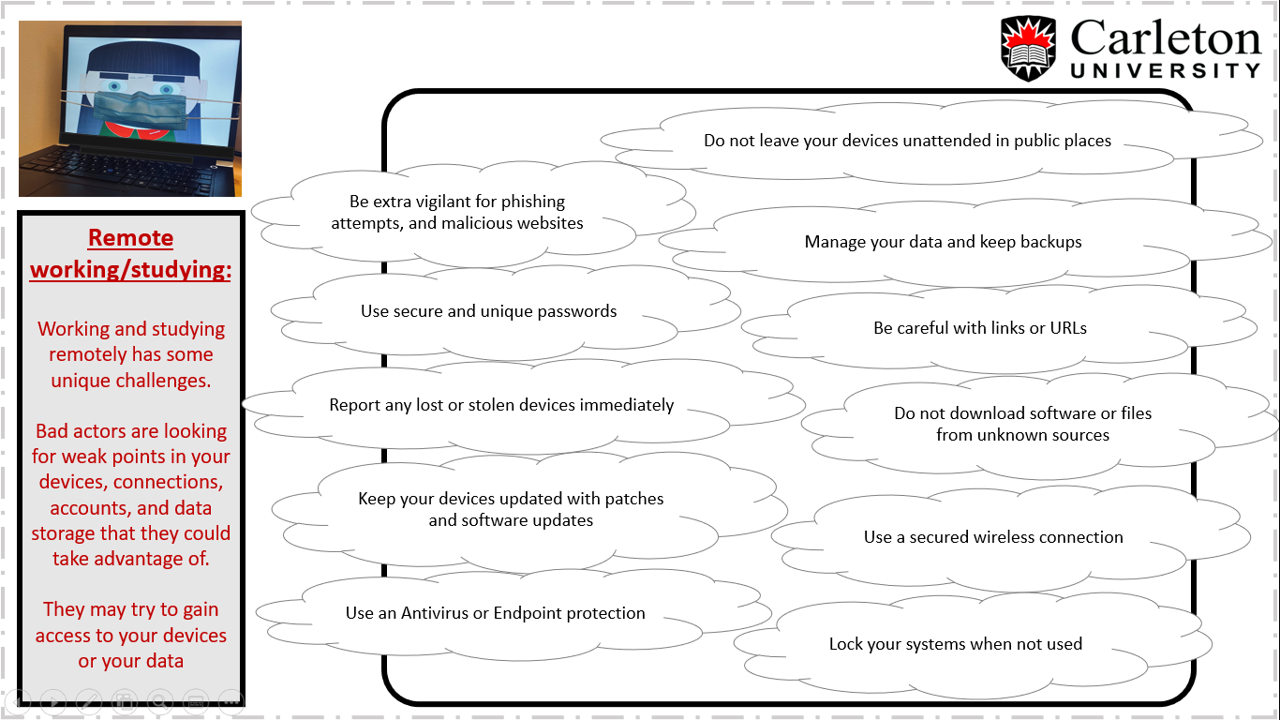Staying Cyber Secure when studying or working remotely
Working and studying remotely has some unique challenges, and cyber criminals are increasingly trying to take advantage of this, looking for looking for weak points in your devices, connections, accounts, and data storage. They may try to gain access to your devices or your data, so staying Cyber Secure when studying or working remotely is critical.
The following suggestions can help you stay secure when you are working and/or studying remotely.
- Be extra vigilant for phishing attempts, and malicious websites. Read more in Phishing and Reporting
- Use secure and unique passwords for every website, service or account that you have. Have a look at our tips on passwords and password management.
- Ensure your computer, and mobile devices stay current with patches and software updates. Please visit the ITS Help Centre for information on updating various devices.
- Use an Antivirus or Endpoint protection product to protect your device.
- Be cognizant of where your files are stored. Files stored on a local home PC are not typically backed up. Where possible, use:
- Microsoft OneDrive
- Microsoft Teams
- ‘CUNAS’ Network Drives (P: or W: drive)
- Be careful with links or URLs, and do not download or install software from any untrusted sources.
- Use a secured wireless connection at home.
- Lock your screen if you are in a shared space.
- Report any lost or stolen devices immediately to Campus Safety Services.
Learn more about incident report: Incident Reporting
Want to learn more about Cyber security and how to be more cyber secure while working or studying remotely, we have interactive courses you could take. Working Remotely
Please visit the ITS website for further details, including examples of phishing messages that have been reported. IT Security
If you have questions, or would like any support or assistance; please contact the ITS Service Desk through the following website ITS, through email at its.service.desk@carleton.ca, or by telephone at 613-520-3700.
